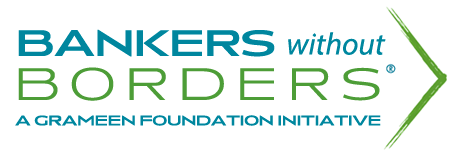I was bouncing around on the back of a moto, mud splashing my legs, racing around mountain bends, admiring the breathtaking views of green mountains stacked upon green mountains, the coffee fields creating maze-like designs on the mountain landscape, when I looked back at Miguel, our Field Deployment and Support Specialist, a huge smile on my face. This was one of the reasons I came back to Colombia after everything that had happened.
Miguel and I were crisscrossing the Colombian Coffee Triangle, kicking off our Community Knowledge Worker (CKW) Program with one of our partners, COOCAFISA, a coffee cooperative in the region of Antioquia. In Colombia, we’ve dubbed the CKW program Líderes Productores, but it has the same foundation as Uganda’s successful model. The program centers on a community-nominated leader who is trained on the use of a mobile device and suite of technology tools designed to facilitate the collection and dissemination of information. In the case of COOCAFISA, surveys are being implemented to gather information about associated farmers. That information will then be used to create targeted farm management plans for each coffee farmer, setting individual targets and providing the knowledge inputs necessary to achieve those targets. Additionally, real-time agricultural extension information is housed on the mobile device. With mobile extension services, the first step for farmers experiencing issues with their coffee production can be a quick visit from their Líder Productor who can look up symptoms and subsequent treatment on their mobile device, rather than waiting days for an extension agent from the cooperative.
So, you can see why I was excited. We were in the field, implementing an awesome program that has the ability to profoundly change the way coffee producers cultivate and harvest their product. It was so exciting to be working directly with the farmers that would be benefiting from our technology. Many fit the stereotypical image of Colombian farmers, with hardened tanned and lined faces, wide brimmed hats, and unbuttoned shirts. Others bucked the long-paved Juan Valdez image of coffee farmers. At our first training, half the participants were women. Others were young coffee producers, wearing baseball hats instead of wide-brimmed hats, jackets instead of ponchos draped over their shoulders. No matter the appearance, all were excited for the training, and by the end, were enthusiastic about implementing what they learned to improve their communities, proudly walking out the doors of the training centers, their Líder Productor hats perched on their heads.
For me, the trainings were fantastic. It was a way for me to see firsthand the impact we are having, something that can be hard to understand when based in Medellín, distanced from those we are serving. And while the training days were certainly more than chaotic, there were moments, such as when I stepped out of the training site during a lunch break, and saw a man standing in the middle of the parking lot, holding a horse, wearing a wide-brimmed hat and work apron, green mountains spanning behind him, that reminded not only that I was in Colombia, but why I was there.

I did my best during the trainings to make sure I was taking in just as much as the Líderes. I asked questions about their coffee production, learning that currently, the coffee trees are producing beautiful white flowers that give off a perfumed scent. I held back sleep while traveling rural roads as we moved from one location to the next, hungrily drinking in the beautiful scenery and everyday scenes. I sipped coffee out of a “Café de Colombia” coffee cup, ¼ of the coffee leaking out the bottom of the cracked mug, while sitting in a tiny road-side store perched on the edge of a mountain, looking out upon coffee fields. One day, after a training, I took advantage of our location in the COOCAFISA buying facility and learned how COOCAFISA buys coffee from their associated farmers, how they process the beans, and where it ends up. And I tied it all together by visiting one of the Líderes in his coffee fields, prompting that crazy moto ride, which brought me to the town of Gulunga, overlooking a beautiful valley, filled with amazing people earnestly working to improve their situation. As I was the newcomer to coffee production, Miguel, our COOCAFISA liaison, and our newly minted Líder Productor set it as their mission to teach me as much as I could possibly learn in the course of the morning. Birds were pointed out. Sweet coffee beans were proffered for me to taste. Coffee cultivation methods were discussed. Weeds were pulled for me to chew on. It was, in my opinion, every development worker’s dream morning.
The last couple of days, we’ve been monitoring the reports coming in as a result of the surveys, building the profiles of COOCAFISA’s associated farmers. It’s thrilling to see the first results of our trainings. As exciting as this is however, I’m already itching to get back into the field, back onto a moto on windy, bumpy roads, to see how our Líderes and their communities are doing in person.
Interested in spending a year in the field working with some of the world's most promising social enterprises? Apply for a 2014 Grameen Foundation Fellowship! All applications must be received by March 15, 2014.

